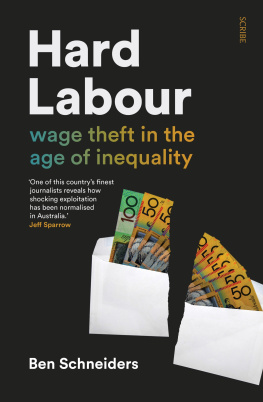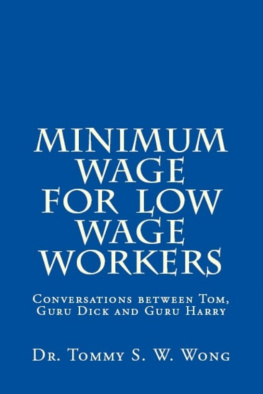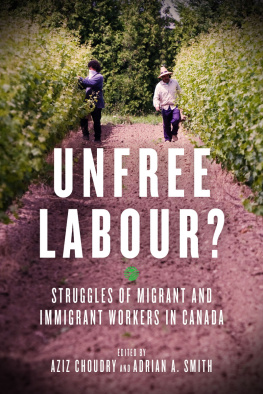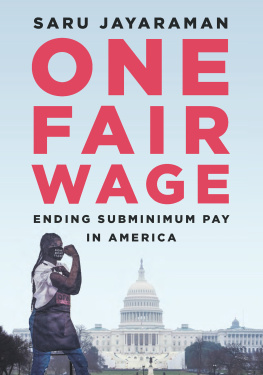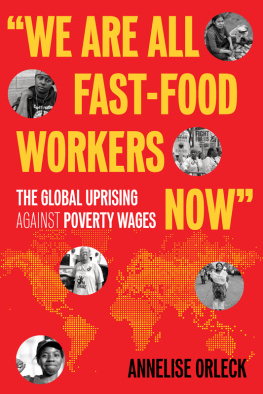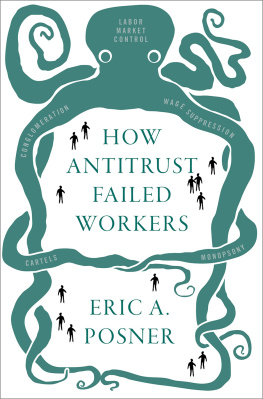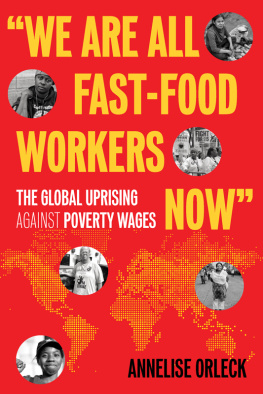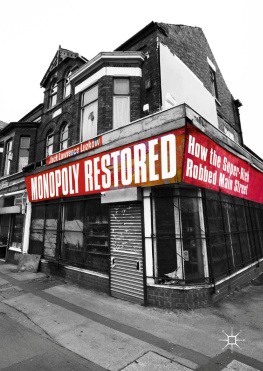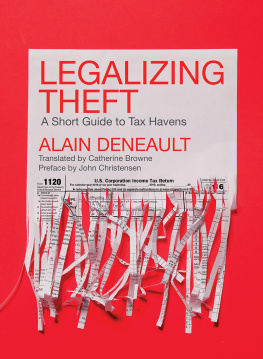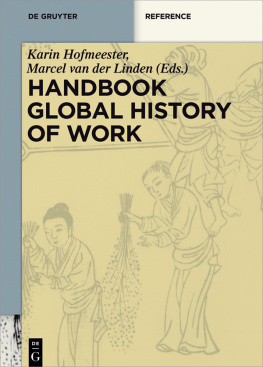
Hard Labour
Ben Schneiders is an investigative journalist at The Age . His reporting has exposed more than two dozen companies for wage underpayment, including some of the biggest names in corporate Australia. He is a Walkley Awardwinning reporter, and has won the industrial relations reporting award four times. He regularly reports on work, social issues, politics, and business.
Scribe Publications
18-20 Edward St, Brunswick, Victoria 3056, Australia
2 John St, Clerkenwell, London, WC1N 2ES, United Kingdom
3754 Pleasant Ave, Suite 100, Minneapolis, Minnesota 55409, USA
Published by Scribe 2022
Copyright Ben Schneiders 2022
All rights reserved. Without limiting the rights under copyright reserved above, no part of this publication may be reproduced, stored in or introduced into a retrieval system, or transmitted, in any form or by any means (electronic, mechanical, photocopying, recording or otherwise) without the prior written permission of the publishers of this book.
The moral rights of the author have been asserted.
Scribe acknowledges Australias First Nations peoples as the traditional owners and custodians of this country. We recognise that sovereignty was never ceded, and we pay our respects to their elders, past and present.
978 1 922585 32 5 (Australian edition)
978 1 922586 67 4 (ebook)
A catalogue record for this book is available from the National Library of Australia.
scribepublications.com.au
scribepublications.co.uk
scribepublications.com
To Sarah, Sebastian, Isaac, Harriet, and for those to come.
Glossary of trade unions
Australian Council of Trade Unions (ACTU)
Australian Education Union (AEU)
Australian Manufacturing Workers Union (AMWU)
Australian Nursing and Midwifery Federation (ANMF)
Australian Workers Union (AWU)
Construction, Forestry, Maritime, Mining & Energy Union (CFMMEU)
National Tertiary Education Union (NTEU)
National Union of Workers (NUW)
Retail and Fast Food Workers Union (RAFFWU)
Shop, Distributive and Allied Employees Association (SDA)
Transport Workers Union (TWU)
United Workers Union (UWU)
Contents
Chapter One:
Chapter Two:
Chapter Three:
Chapter Four:
Chapter Five:
Chapter Six:
Chapter Seven:
Chapter Eight:
Chapter Nine:
Introduction
The symptoms of rising inequality are visible all around us especially in the celebration of excess and extreme wealth, and the vastly different worlds people inhabit while living in the same country or even a few suburbs away in the same city. Even how likely someone was to get sick and die of Covid-19 in the first few years of the pandemic was shaped by these material divides. Whether it is over access to private education, private health, private housing, adequate superannuation, or the jobs that people get to do, a whirring, self-perpetuating inequality machine has been created in Australia. It runs from the cradle to the grave, creating a parallel society for those who have the good fortune to access the gilded system or are born into it. The machine now appears nearly impossible to stop or slow. Rising inequality, along with climate change, are the major crises of our age, undermining democracy.
Some Australians have lives of great privilege, unparalleled in human history. Less often acknowledged is another side to this prosperity. About one-quarter to one-third of the workforce is locked in a cycle of precarity through job insecurity, low pay, and, often, wage theft. A large, sprawling de facto guest-worker program of up to one million non-citizens on a range of work and student visas has been created, mostly servicing the wealthy, and the affluent middle class. Most of these facts are obscured from view, not part of the dominant narrative of what Australians tell themselves about life in this country. Yet these experiences are real and are a fundamental challenge to Australias political and economic system, which was built through the twentieth century, and produced far greater levels of material equality. Based on statistical measures of income inequality (see Graphs One and Two), Australia has not been this consistently unequal since the 1930s, and is now more unequal than many of the countries in the OECD, ranking thirteenth out of thirty-eight countries. It is more unequal, by income, than Poland, Greece, and Ireland. When we measure inequality by wealth, the gap is still wider. It is a great time to be rich.
When we look to the US, or parts of Europe, we can also see the effects of growing inequality: the lack of hope for a better future, and the lure of the authoritarian leader. Whether the same forces could formalise and take root here is debated, but if we look closely we can see their presence, albeit not yet in such sharp relief. There is the collapse of trust in our system to deliver opportunity as extensively as before, and a gravitation away from major parties to the often unhinged and to the conspiracy theorists. There is the spectacle of the billionaire Clive Palmer tapping into anti-vaccination sentiment to become a voice for those opposed to the status quo, even though there are few greater beneficiaries from it than him. It is a now-familiar dynamic that led to Donald Trump becoming a US president. At its heart is often a sense of powerlessness and a distrust that the institutions that have shaped Western democracies still work, or ever did. Or that there are credible pathways to a better life.
Australia has become seriously rich since the 1980s, as we opened our economy more fully to global capital and trade flows, and as China boomed. We can see the exaltation of great wealth, the tens of billions owned by Twiggy Forrest, Mike Cannon-Brookes, or Gina Rinehart. These were unimaginable sums a few decades ago. The richest Australian in 2001 was Kerry Packer, worth $6.2 billion. Twenty years later, the richest Australian was mining heir Gina Rinehart, who was worth $31 billion, her wealth having tripled in a decade. Yet the rising tide has not lifted all boats. Many have been left behind, particularly those with low levels of education. Once, people without assets could make a good life for themselves. Now, less so. Those without degrees earn about 50 per cent less than those with a higher education. An analysis of Bureau of Statistics data shows those with less education report having poor or fair health at twice the level of the most educated. All this breeds resentment, as people often feel intuitively that the system is stacked against them.
And a more unequal society manifests itself in all sorts of ways some obvious, some less so. It can be observed in the different choices people have to make, whether it is to work outside the home in Covid-exposed sectors and risk illness, to have the burden of high debt and job insecurity, to never own a home, or to retire with few savings. All of this is shaped by the lottery of birth, class, gender, race, and the suburb or town that you were born into. Inequality matters. It condemns many of us to unnecessarily harder lives, and it is fundamentally undemocratic, based often on inheritance and who gets access to the best education, the best healthcare and jobs, and the opportunities to more fully develop their talents. Yet inequality, much like climate change, may increase too slowly to create a vivid and immediate existential crisis in the way the pandemic has. Eventually, much like climate change, rising inequality causes fundamental changes to a society, as we have seen in countries with the sharpest disparities of wealth and income. It is the path to social upheaval and authoritarianism, to social revolutions, and to growing distrust and contempt. Much like climate change, when left to run wild, it becomes much harder to fix.
Next page
